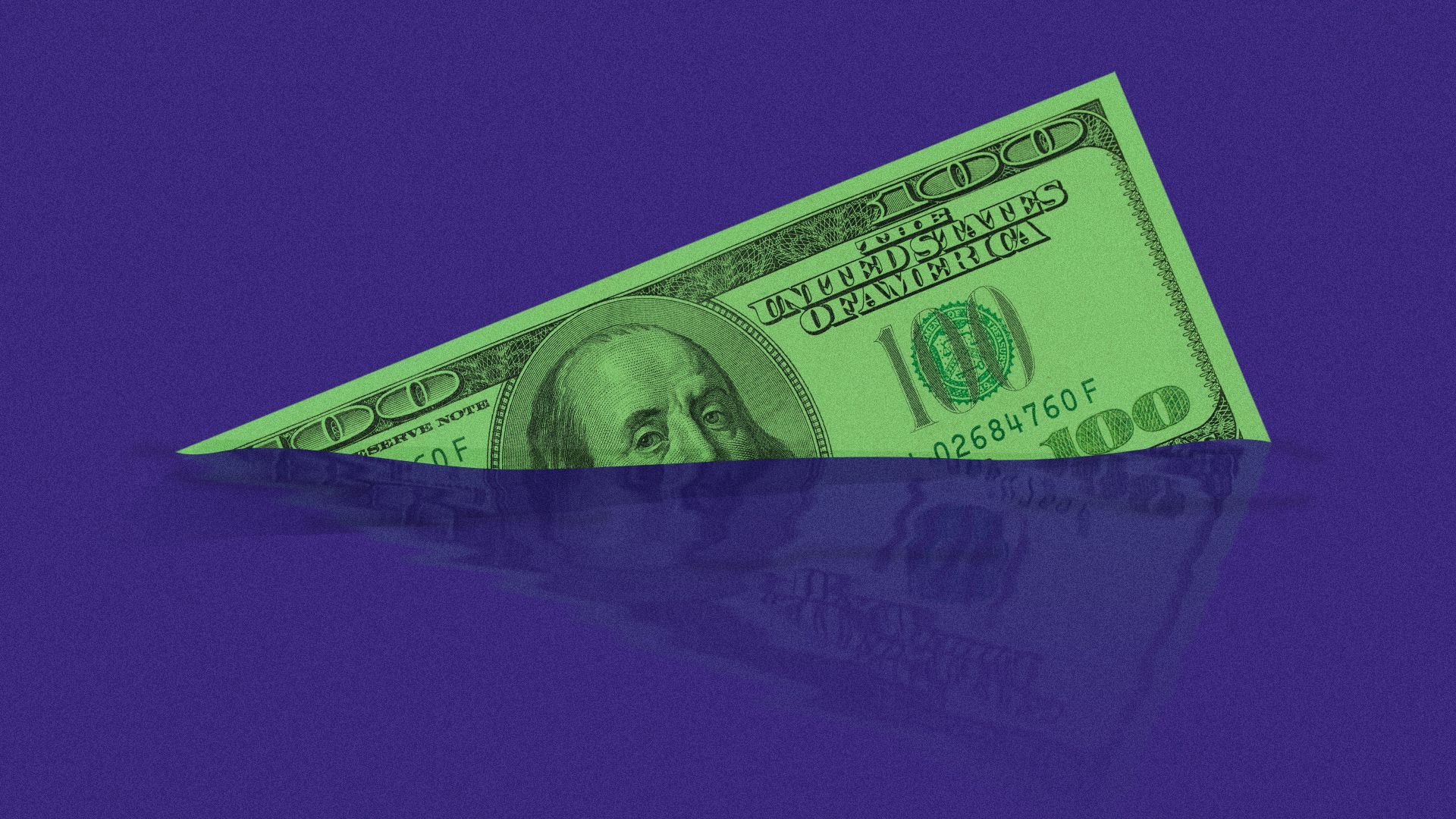Congress lacks urgency for more economic stimulus
Add Axios as your preferred source to
see more of our stories on Google.

Illustration: Aïda Amer/Axios
One of the pandemic's few silver linings came in late March, when elected officials put aside partisan differences to quickly pass a massive, across-the-board economic stimulus. Six months later, we're back to the old normal — even though many remain desperate for assistance.
Driving the news: The Senate on Thursday rejected a so-called "skinny bill" championed by Republicans. It would have included a second round of Paycheck Protection Program loans for small businesses, school funding, and virus-related liability protections for businesses.
What's happening: America is more than a month past the expiration of expanded unemployment benefits and the initial PPP program, and the "V-shaped recovery" remains little more than a cable news talking point. Yet there is no urgency on either side of the aisle, and it's unconscionable.
- Democrats want a much larger package, something closer to the House bill they passed back in May. They've already demonstrated a willingness to pass some piecemeal spending — namely the U.S. Postal Service funding bill — but hypocritically refuse to do so on broader stimulus, even though they agree with features like the revamped PPP, which could help keep countless small businesses from going under.
- Republicans seem uninterested in meeting Democrats near the middle, and knew the skinny bill would be rejected before cynically proposing it. President Trump almost never raises the issue during speeches or other public comments, instead pretending the pandemic and its consequences are in the rearview.
- Some on Capitol Hill would like to attach stimulus funding to a continuing resolution to fund the government past September, but few seem optimistic that it will happen.
The bottom line: The CARES Act was hardly perfect, and efforts like PPP were marred by both logistical hiccups and some alleged fraud. But it was, on balance, a vital lifeline for the country — one where politicians didn't let the perfect become the enemy of the good.

